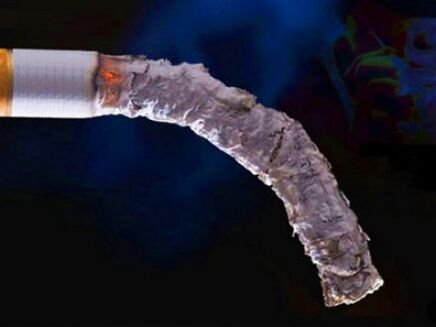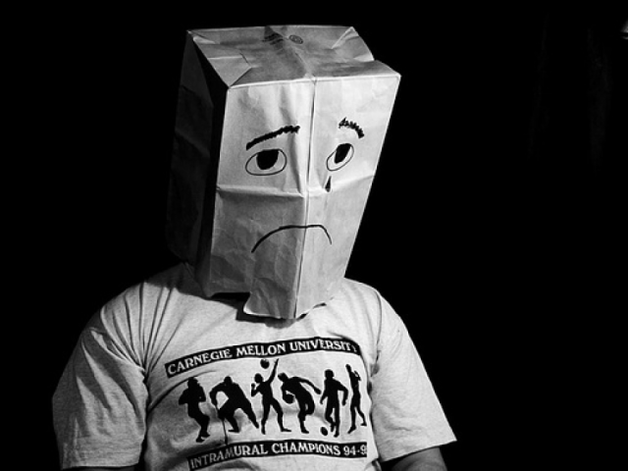It is very important for every man to be strong sexually. One of the greatest subconscious fears of a man is sexual impotence, or impotence. However, already after 40 years, a man can begin to show the first signs of a decline in potency.

In this case, you should throw away all complexes and consult a doctor, because in the early stages this problem is treated quickly and effectively.
Problems with potency: types of disorders
Impotence is a gradual decline and disappearance of a man's sexual function. The disorder can periodically remind itself after the age of 40 and as the man ages it only intensifies if no action is taken. There are symptoms (or criteria) that allow a doctor to diagnose a decrease in potency in a man:
- A man's lack of sexual attraction to a woman.
- With sexual desire, a man still experiences difficulties in achieving an erection, that is, erectile dysfunction is observed.
- A man cannot insert an erect penis into a woman's vagina.
- A man has premature ejaculation, while the erection is very short.
- A man has a delay or even complete absence of ejaculation.
- To achieve orgasm, a man needs special conditions (for example, in a car, elevator, park, etc. , where other people can see sexual intercourse, or in other non-standard conditions).

There are 2 types of impotence, based on the nature of its occurrence:
- organic. This type of disorder appears due to some problem in the body: certain diseases, medications, injuries, etc.
- psychogenic. This disorder occurs due to any psychological factor: stress, subconscious fear of failure in sex, insecurity, psychological trauma, etc.
However, there are many reasons that can contribute to the development of potency disorders. It is very important to know about them, because it is the identification of the cause of the problem that is the first step to get rid of the problem itself.
Problems with potency: causes
What should be done if a man has sexual disorders? First of all, you need to identify the reason that led to this.
Among the most common causes of the development of the problem in men are the following:

- irregular sex life. If a man's sex life is irregular, potency decreases and sexual behavior is distorted.
- infectious diseases. Diseases that are sexually transmitted are treated quickly and efficiently by modern medicine. But only drugs that give such a good therapeutic effect significantly reduce potency. Therefore, very active sexual behavior, sex with different partners is not the best option. Risk for potency are also completely untreated diseases of the genitourinary system: prostatitis, orchitis, vesiculitis, urethritis, etc.
- chronic disease. Diseases such as hypertension, disorders of the endocrine system, diabetes mellitus, prostate hyperplasia, significantly reduce sexual desire.
- bad habits and objective factors. Alcohol abuse, drug abuse, a passive lifestyle, smoking, irregular sleeping and eating, unfavorable climate are also enemies of a man's sexual power.
- age factor. After 40 years, the "first bells" of a weakening of a man's sexual strength may appear. At the same time, you should understand that each person has his own body, his own rhythm, his own concept of the norm. Therefore, you should not take as an axiom the norm established by doctors - at least 1 sexual intercourse per week. If a man has a norm, for example, 1 act in 10 days, then you should not "sound the alarm" and prove to yourself and your partner that everything is fine with his power. This will lead to exhaustion of the body, and then indeed to disorder.
For any man, the fact that he is no longer capable of everything he was capable of recently is a great stress. But impotence is treated quickly and efficiently. And the sooner a person turns to a specialist, the faster and easier it will be to solve the problem.
Problems with potency in men: the physiological aspect

The onset of impotence is very easy to explain in physiological terms. To do this, you just need to understand the specifics of the structure of the male penis and the mechanism of initiation of an erection. The body of the penis has a spongy structure that contains many cavities. This is what allows the erection process to begin.
When a member is in a quiet state, blood circulation occurs as follows: blood quietly enters the cavities through the arteries and leaves through the veins. In a state of sexual arousal, there is a sharp increase in blood flow in the caverns, while the veins narrow, which prevents blood from flowing out. And every cavity is filled with blood. From the outside, this is manifested precisely in the tension and enlargement of the penis.
It is worth noting that almost every man at least once had a situation where he could not achieve an erection. And this is not a pathology, much less a sign of impotence. If such a situation occurs constantly, then only in this case it is possible to diagnose impotence.
The physiological nature of impotence
There are a number of causes of impotence which are purely physiological or physical in nature. This includes:

- hormonal disorders. First of all, the cause may be the dysfunction of the gonads, which are responsible for the production of testosterone. This problem has several signs: the timbre of the voice rises, excess fat is deposited on the hips, buttocks, chest, hair growth on the body and face slows down. Another cause may be a pituitary tumor. This is fraught with the fact that the tumor actively produces prolactin. It is the excess of this hormone that causes the disorder.
- cavernous tissue sclerosis. In other words, the thin tissue of the penile cavity dies and is replaced by thick tissue. The cause of sclerosis, on the other hand, can be damage to the penis, priapism, intentional delay in sexual intercourse (if this is a frequent practice).
- disorders of the cardiovascular system. Diseases such as aortic aneurysm, varicose veins and atherosclerosis can lead to male potency problems. They directly affect the process of blood entering and leaving the penis. In particular, blood circulation in the penis can become insufficient, which will contribute to prolonged and sometimes painful erections. In this case, the member is, so to speak, in a semi-excited state. Or, on the contrary, there can be very intense blood flow, which allows an erection to occur quickly, but just as quickly and end. Sometimes a man does not even have time to have sex.
- disorders of the nervous system. Diseases such as epilepsy, traumatic brain injury, Parkinson's disease, multiple sclerosis can provoke problems in sexual life. However, these diseases often worsen a person's condition and reduce the quality of his life so much that sex is the last thing he thinks about.
Problems with potency in men: the psychological aspect
Impotence can also have a psychogenic nature. This means that it was psychological factors that affected a man's sexual power. These possible reasons usually include:

- psychological trauma. This can be a number of situations: for example, a man had a sexual failure, but he did not receive support from a woman. Even worse, if a woman showed not only displeasure or annoyance, but laughed at a man, accused him of not loving her, or, even worse, called him impotent. A woman's behavior and reaction in such situations plays a big role.
- stress, nervous tension, depression. The life of a modern man is full of stressful situations; for many, life is literally a race to the bottom. It is not surprising that sooner or later a man begins to experience difficulties in an intimate matter.
- complex, subconscious fear. According to andrologists, the reasons why a man begins to have difficulties are in the psyche. The complex that it will not be possible to satisfy a woman (for example, during the first intimacy), the fear of "searching" (especially if there have already been precedents), etc. - all this instantly affects the power of a man. In addition, there can be incompatibility of partners, which can also cause impotence. According to andrologists, of all the possible causes of impotence, the most common is the psychological one. Therefore, usually the treatment of men with such a diagnosis is carried out by a psychologist (sexologist).
Treatment methods for power disorders
There are several approaches to treating the disorder. Depending on the severity of the disease, its cause, the age and general health of the patient and other factors, the doctor may suggest an option:
Medical therapy
Pharmacies are abundant with various drugs "for strength". But not everyone thinks that they, on the contrary, can harm the body. Moreover, if a man, for example, has impotence due to disorders of the endocrine system, then no matter how many pills he takes, they will not help him, since the situation will improve only after the endocrine disorders are eliminated. Therefore, you should always remember that drug treatment is the prerogative of a specialist.
Consultations of a psychologist (sexologist)
A psychologist (sexologist) can help not only in cases of psychogenic impotence, but also when a man experiences a diagnosis very badly, falls into a state of depression, etc. A psychologist can help a person:
- Determine the cause of the problem (fear, complexes, stress, uncertainty, etc. ).
- Solve these psychological problems (for example, get rid of complexes or learn how to cope with stress).
- Get out of the state of despair, depression, etc. , if these experiences exist.
- Provide psychological support, help the patient look at the future with optimism.
As a rule, if a person is seriously experiencing an illness, drug treatment is combined with psychotherapy, which gives an excellent therapeutic effect.
Penile prosthesis
This is a drastic measure, which is used as a last resort when none of the treatment methods have helped. This method is usually offered to men at a younger age. The operation gives a 100% effect, it is performed at such a high level that even specialists do not always notice that a penis prosthesis has been performed.
Only one doctor treats patients. He performs a diagnosis, a comprehensive examination, identifies the cause of the disorder and only on the basis of this data prescribes the course of treatment that is necessary for a particular patient. Sometimes a psychologist works with both partners, because the effectiveness of the treatment directly depends on the appropriate behavior of the woman.
Additional activities
This includes, for example, dietary recommendations, which in the early stages of the disorder can even resolve the situation itself. In the most severe cases, diet is an additional mandatory measure. It is important for every man to eat foods rich in vitamins E, C, beta-carotene.
Vitamin E contains all kinds of nuts, sunflower seeds, beef liver, buckwheat, oats, eggs, vegetable oils (especially soy) in its raw form.
Vitamin C is found in sea fish, seafood, berries, citrus fruits (especially lemons), fruits.
Carrots, bell peppers, all types of cabbage, greens (especially parsley), apricots contain beta-carotene in large quantities.

























